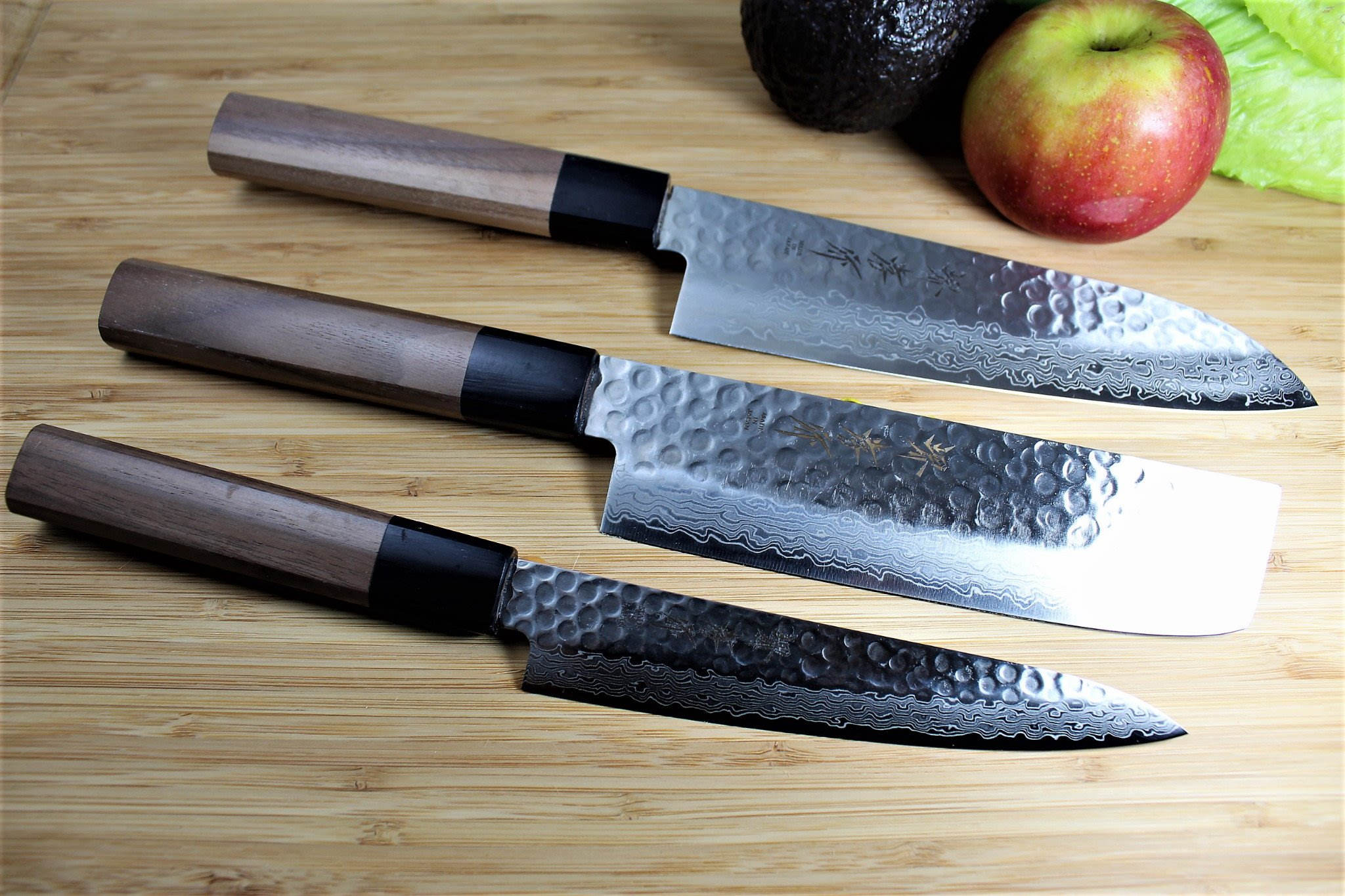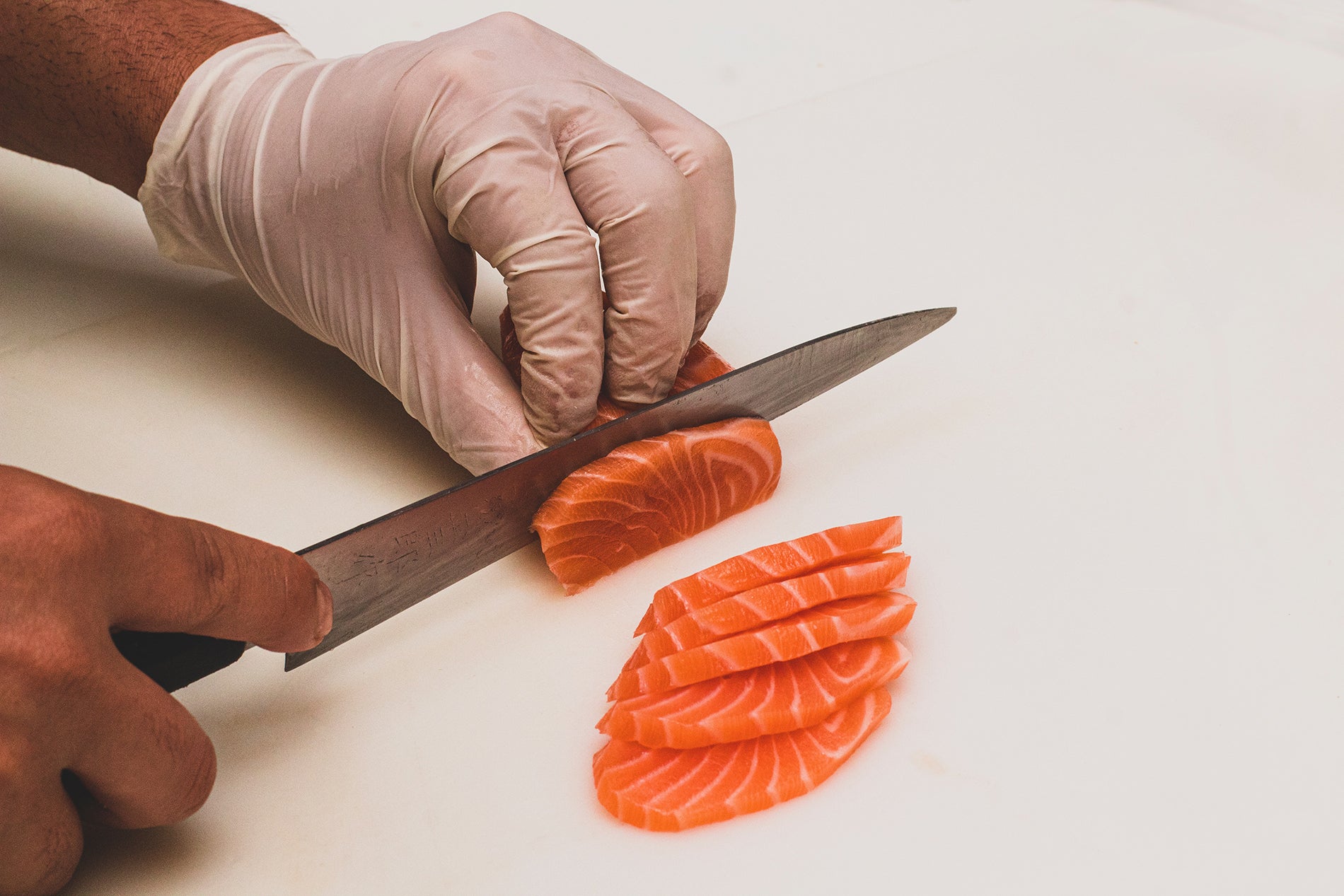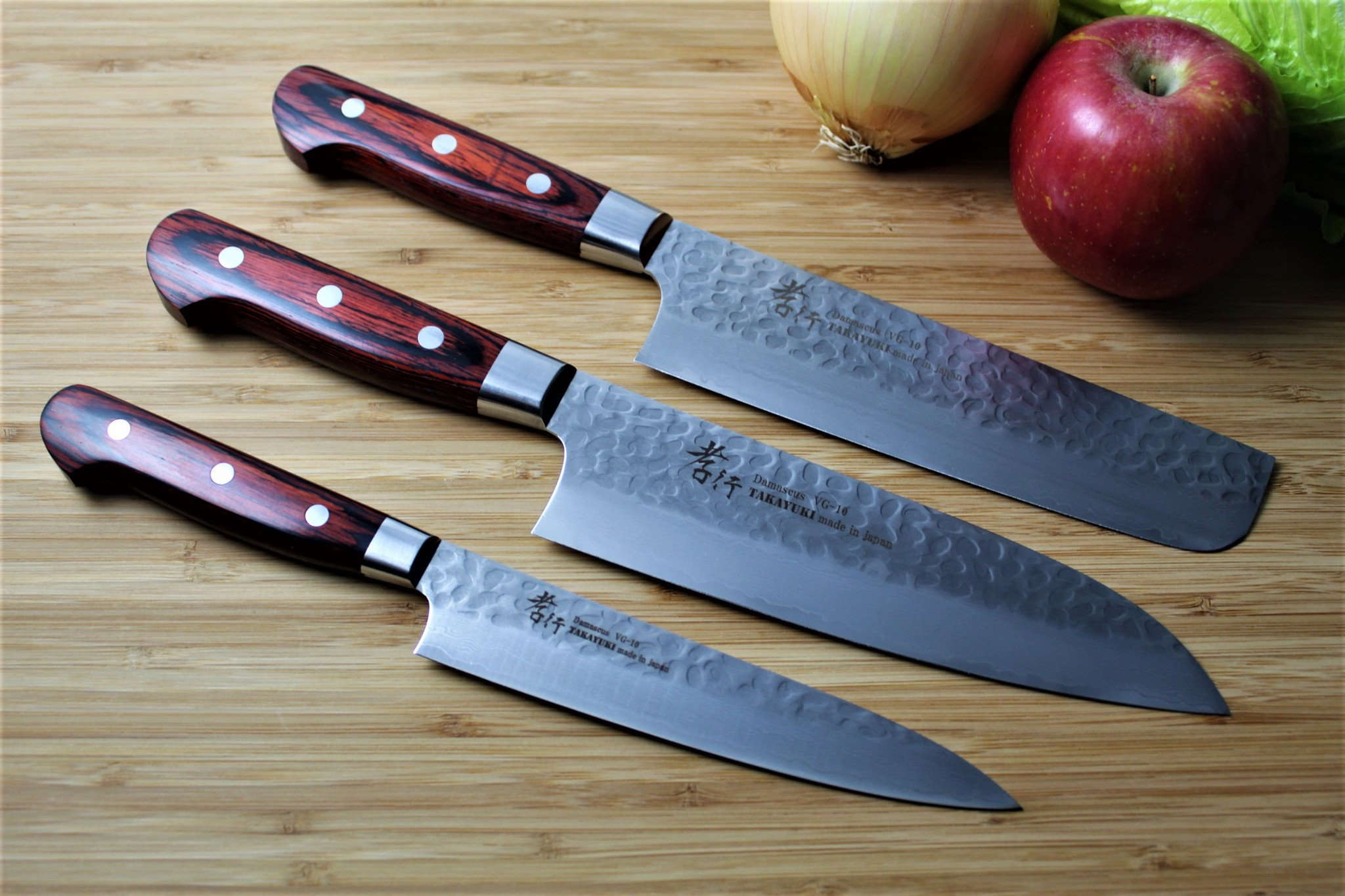
How To Choose The Correct Japanese Knife For You
Are you just starting out in the kitchen, or already a seasoned pro? Either way, do you have the right tools for the job? If you’re looking to up your cooking game, you can’t go wrong purchasing a Japanese kitchen knife. Unlike standard cooking knives, a Japanese kitchen knife offers precision for chopping, and when properly cared for, can last a lifetime.
From browsing a Santoku knife to a Nakiri knife, how do you know which option is right for you? Every cut counts in the kitchen. From prep work to plating, a Japanese kitchen knife can be a game-changer. Understanding how to choose the right Japanese knife makes all the difference.
This article will help you choose the best Japanese kitchen knife for your needs!
Why Knowing How to Choose the Right Japanese Knife Matters
Japanese craftsmen design kitchen knives with a focus on sharpness, accuracy, and long-lasting edge retention. They use high-carbon steels that allow for harder, thinner blades to provide precise control during preparation.
Unlike European blades, which focus on durability, Japanese knives prioritize cutting finesse and balance. For this reason, they’ve become fundamental tools for both home cooks and professional chefs.
Choosing a Japanese knife
Japanese knives are best known for their sharpness, precision and edge retention, thanks to their high-quality steel. They can separate meat from the bone with little to no resistance, and are balanced perfectly for their users. While there are a wide variety of Japanese steels used, what sets Japanese kitchen knives apart from European kitchen knives is the carbon content and the attributes of the steel. These steels typically have a higher carbon content which makes them harder, allowing for thinner blades and an edge that retains its sharpness for long periods of time.
While there is a wide variety of Japanese steels used, what sets Japanese kitchen knives apart from European kitchen knives is the carbon content and the attributes of the steel.
These steels usually contain a higher amount of carbon, which makes them harder. This hardness enables the use of thinner blades and an edge that remains sharp for extended periods.
The types of Japanese knives
There are three primary varieties of Japanese kitchen knives that are the most commonly used. Let’s explore these different Japanese types and take a closer look at how they can be utilized in your kitchen.
- Santoku knife: Santoku means ‘three uses’ in Japanese, which means your Santoku knife can be used in three ways: for fish, meat, and vegetables. With this knife, you can slice, dice, and mince whatever comes across your benchtop.
- Nakiri knife: A Nakiri knife is perfect for slicing, mincing, or chopping your vegetables. Featuring a rectangular design and a thin blade, chefs can effortlessly prepare vegetables. They are an ideal option for vegetarians or vegans.
-
Gyuto knife: Gyuto knives are classified as all-rounders. This is the Japanese Chef's Knife. It can be used for chopping, slicing, dicing, and julienning. It is large enough to handle most meats, as well as vegetables like cabbage and carrots. If you’re looking for a one-and-done Japanese knife, the gyuto knife is the way to go.
How to Care for Your Japanese Knife
As Japanese knives are made with high-quality steel, adequate care is required to make sure they last. Japanese knives are best used on a wood end-grain cutting board, which prevents damage and preserves the sharpness of the blade.
Once you are done using the knife, hand wash it immediately with a soft detergent. Dry with a clean cloth and store them in a cool, dry place. Japanese knives should also never be run through a dishwasher.
Craftsmanship That Belongs in Your Kitchen
Hasu-Seizo carries a curated collection of handcrafted Japanese knives. Each knife in our lineup is made in Japan and built to meet exacting standards. Are you drawn to the clean lines of a Nakiri or the all-purpose strength of a Gyuto? We offer detailed product information, helpful customer service, and a trusted starting point for your collection.
Ready to pick up your first Japanese knife? Check out our range of high-quality steel Japanese knives now!


